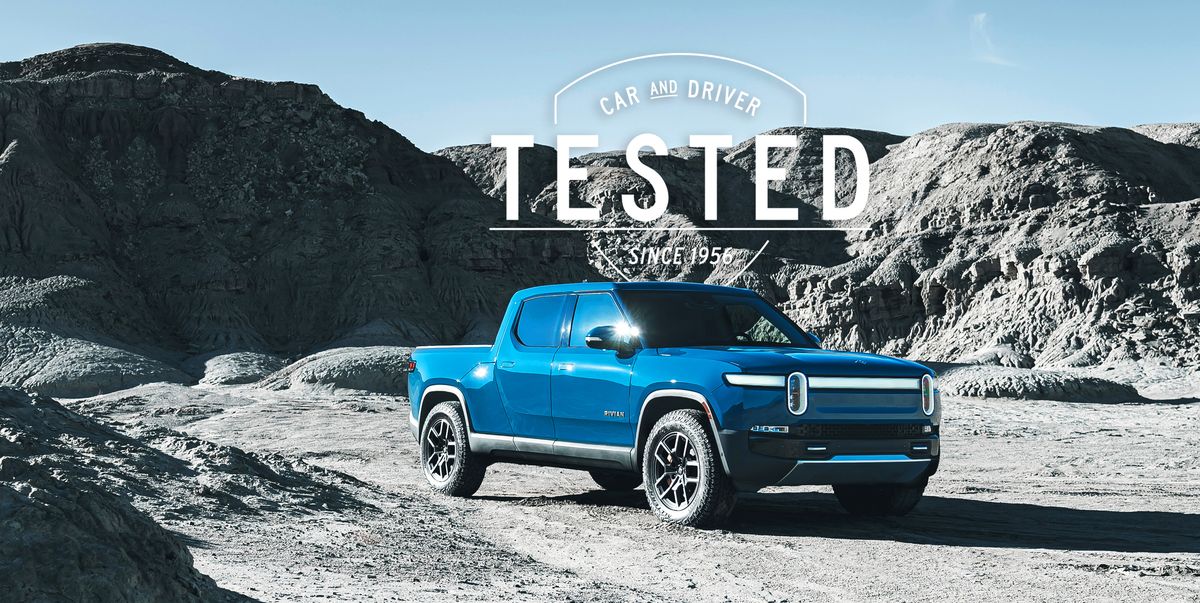Rivian R1T's Fast-Charging Speed Improved with an Over-the-Air Update

Michael SimariCar and Driver

• Car and Driver conducted a test of a 2022 Rivian R1T Launch Edition in June, following over-the-air (OTA) updates which upped the claimed peak charge rate. We saw 199 kilowatts maximum.
• Our average charging rate over the duration of our 10 to 90 percent charging test improved by roughly 7 percent, from 98 kilowatts to 105 kilowatts, just behind the Ford F-150 Lightning, which averaged 106 kilowatts.
• Over-the-air updates open the door to Rivian’s claim of being able to withstand 300-plus kilowatts in the future, which would put it in line with current industry leaders.
Welcome to Car and Driver’s Testing Hub, where we zoom in on the test numbers. We’ve been pushing vehicles to their limits since 1956 to provide objective data to bolster our subjective impressions (you can see how we test here). A more comprehensive review of the 2022 Rivian R1T can be found here.
In an effort to simulate real-world charging, our testing team conducts a fast charging test from 10 to 90 percent state of charge on the fastest equipment the vehicle can handle. This allows us to record in the fastest charging zones (generally between 10 or 15 to 80 percent) and beyond to see how the charging rate declines as the battery is filled. Peak charge rates sound impressive, and are easily marketable, but if the battery is only able to accept power at the peak rate for a short time, average charge rate becomes a much more important metric.
When we originally tested the charging capabilities of an early-build 2022 R1T Launch Edition in November 2021, it managed a peak of 185 kilowatts. The peak came around 25 percent state of charge and held for roughly one minute before quickly retreating.
Our updated test this summer followed an OTA update from Rivian which enabled support for 500 amp charging. Following the update, charging started from 10 percent pushing 191 kilowatts, 81 more than previously, and continued to a peak of 199 kW at 27 percent state of charge. This time the Rivian held the peak charge rate for two minutes facing a similarly sharp decline in charge rate.
Comparing the updated test numbers to the F-150 Lightning’s is a good example of average charge rate providing a better picture of charge rate than peak numbers. While the R1T hits a peak of nearly 200 kilowatts, the Lightning only manages 163. Despite the lower peak, the Ford, with a battery pack that holds slightly more energy, completed our test three minutes faster than the Rivian (61 minutes versus 64) while also edging past it by an average of one kilowatt.
Rivian has announced that further OTA updates will bring peak charge rates over 300 kilowatts. That would place it in contention with some of the industry leaders. Lucid, for example has reached the highest peak charge rate of any EV we’ve tested at 297 kW, enabling the Lucid Air Grand Touring to add 100 miles of real-world highway range in just eight minutes. Our newly crowned EV of the Year for 2022, the Hyundai Ioniq 5, managed to go from 10–80 percent state of charge in only 18 minutes thanks to its 800-volt architecture. For Rivian’s part, it is planning to build its own series of DC fast chargers (3500 of them) at 600 locations throughout the U.S. and Canada.
This content is imported from {embed-name}. You may be able to find the same content in another format, or you may be able to find more information, at their web site.




